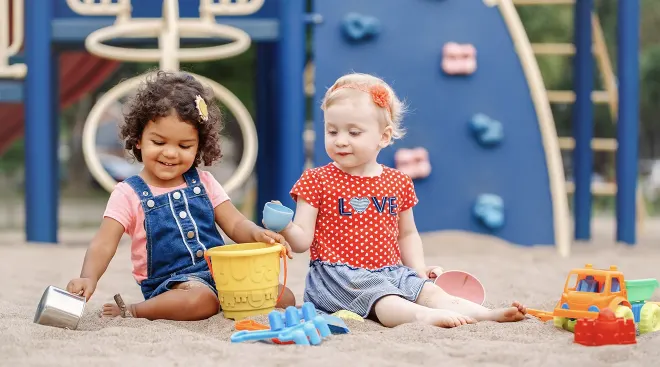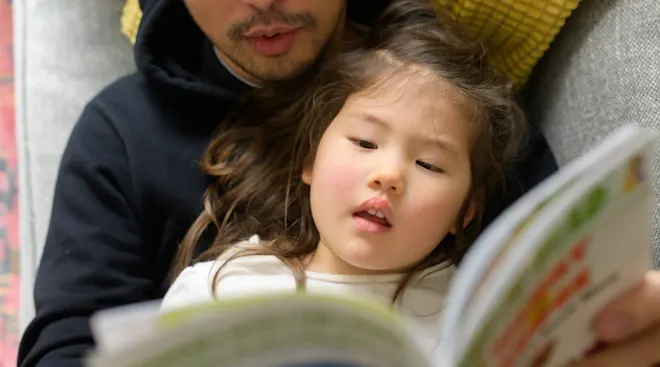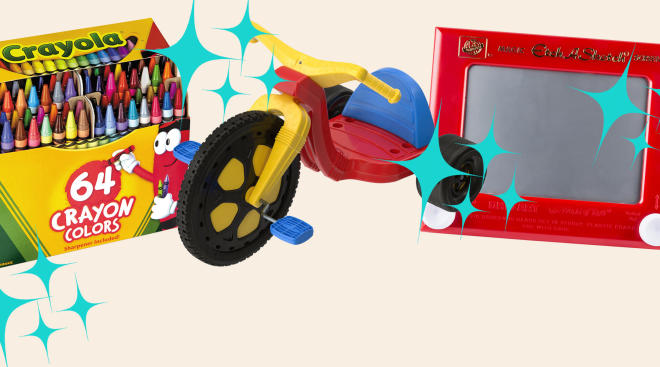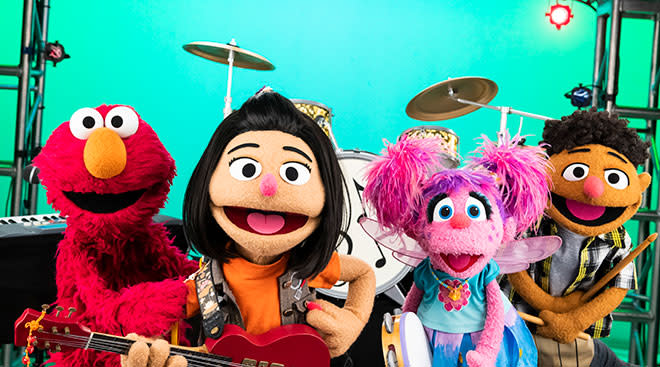Infant and Toddler Brains Naturally Resist Learning During Screen Time—Even on FaceTime
Although certain TV shows pride themselves in being educational, depending how young your child is, the content viewed during screen time won’t have much of an effect on your kiddo’s brain. Previous research has shown that children under the age of 30 months don’t learn very much from watching a screen, and researchers at Vanderbilt University took these observations one step further to see if video chatting, such as FaceTime, helped promote learning in a child’s brain.
Unlike older children, infants and toddlers need responsive, face-to-face encounters with real humans in order to learn new information. But that raises the question—Can infants and toddlers learn from a person on a screen who, unlike on a TV show or app, can call them by name and interact with them in real time? To find out, Georgene Troseth, associate professor of psychology at Vanderbilt, and her team studied 176 toddlers in two age groups—24 months and 30 months—to see under which conditions they would learn the name of an object best. The children in the study did not have prior experience with video chat.
The team of researchers selected a funny shaped object that they chose to name a “modi.” The toddlers were charged with learning the name of the object and putting it in a bin. They were studied under these four conditions:
- Responsive live: the person making the request was present and engaged with the child
- Unresponsive video: the speaker on the screen looked at the camera and smiled at scripted times
- Unresponsive live: although present, the speaker behaved as she did on the unresponsive video
- Responsive video: a speaker on closed-circuit video engaged with the child, just as they might on video chat
They found toddlers in both age groups reliably learned the toy’s name in the responsive live condition, and older toddlers learned in the unresponsive live condition. Neither group learned in either of the video conditions.
Since a flat image on a screen isn’t real to a toddler, explains Troseth, their brains tell them what they’re seeing isn’t relevant and not something they can learn from. Even though video chat includes more communicative social cues and interaction than a nonresponsive video, the medium still wasn’t sufficient enough to support learning in the study.
Which is why researchers say the best way for infants and toddlers to learn is through positive interactions with an adult. When parents use dialogue-based questions, such as asking their child questions and encouraging them to think critically, young children are more likely to have a learning takeaway.
Please note: The Bump and the materials and information it contains are not intended to, and do not constitute, medical or other health advice or diagnosis and should not be used as such. You should always consult with a qualified physician or health professional about your specific circumstances.
Navigate forward to interact with the calendar and select a date. Press the question mark key to get the keyboard shortcuts for changing dates.




















































